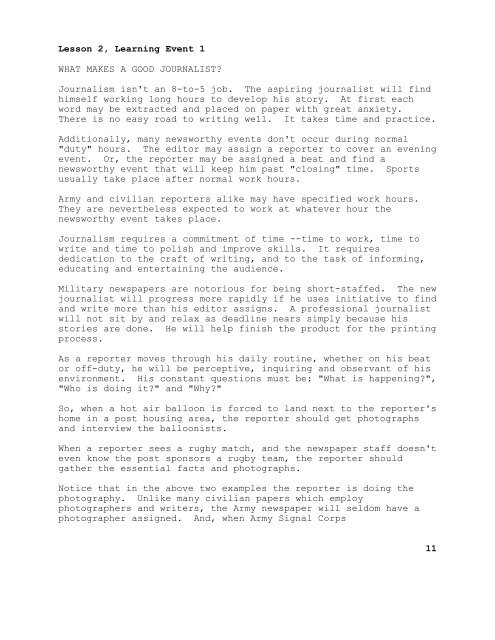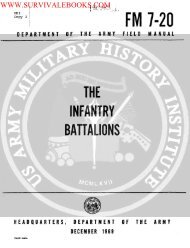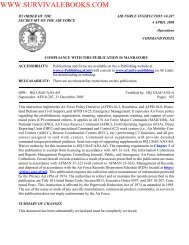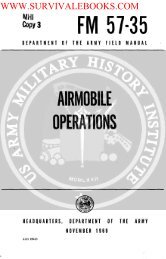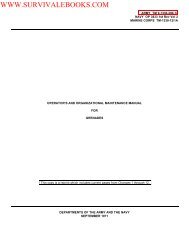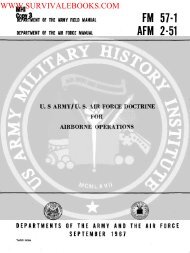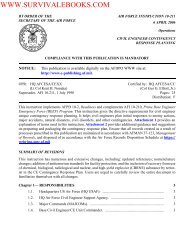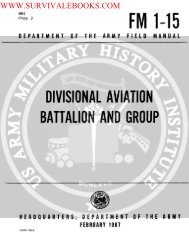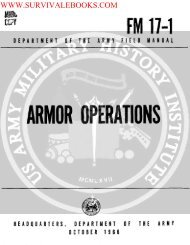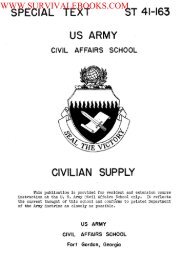US Army Journalist - Course - Survival Books
US Army Journalist - Course - Survival Books
US Army Journalist - Course - Survival Books
- No tags were found...
You also want an ePaper? Increase the reach of your titles
YUMPU automatically turns print PDFs into web optimized ePapers that Google loves.
Lesson 2, Learning Event 1WHAT MAKES A GOOD JOURNALIST?Journalism isn't an 8-to-5 job. The aspiring journalist will findhimself working long hours to develop his story. At first eachword may be extracted and placed on paper with great anxiety.There is no easy road to writing well. It takes time and practice.Additionally, many newsworthy events don't occur during normal"duty" hours. The editor may assign a reporter to cover an eveningevent. Or, the reporter may be assigned a beat and find anewsworthy event that will keep him past "closing" time. Sportsusually take place after normal work hours.<strong>Army</strong> and civilian reporters alike may have specified work hours.They are nevertheless expected to work at whatever hour thenewsworthy event takes place.Journalism requires a commitment of time --time to work, time towrite and time to polish and improve skills. It requiresdedication to the craft of writing, and to the task of informing,educating and entertaining the audience.Military newspapers are notorious for being short-staffed. The newjournalist will progress more rapidly if he uses initiative to findand write more than his editor assigns. A professional journalistwill not sit by and relax as deadline nears simply because hisstories are done. He will help finish the product for the printingprocess.As a reporter moves through his daily routine, whether on his beator off-duty, he will be perceptive, inquiring and observant of hisenvironment. His constant questions must be: "What is happening?","Who is doing it?" and "Why?"So, when a hot air balloon is forced to land next to the reporter'shome in a post housing area, the reporter should get photographsand interview the balloonists.When a reporter sees a rugby match, and the newspaper staff doesn'teven know the post sponsors a rugby team, the reporter shouldgather the essential facts and photographs.Notice that in the above two examples the reporter is doing thephotography. Unlike many civilian papers which employphotographers and writers, the <strong>Army</strong> newspaper will seldom have aphotographer assigned. And, when <strong>Army</strong> Signal Corps11


